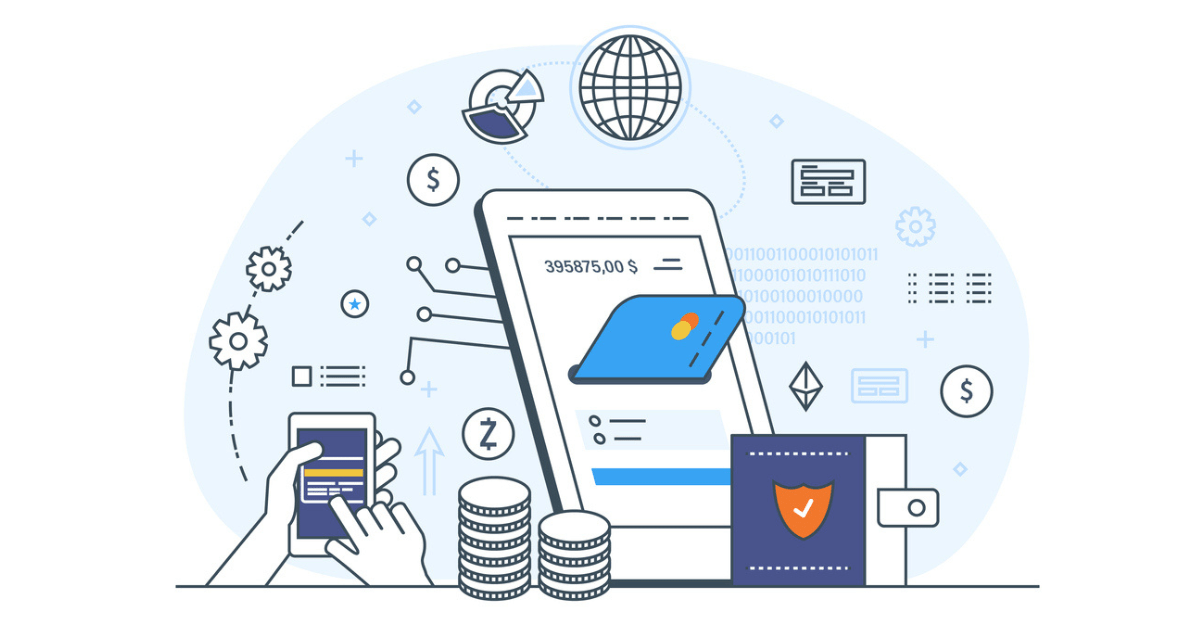AUTHOR : BABLI
DATE : 11/12/23
Introduction
Payment processing[1] solutions encompass a range of technologies and services designed to facilitate the seamless flow of transactions between businesses and their customers. From traditional point-of-sale systems to cutting-edge online payment gateways[2], these solutions play a pivotal role in ensuring smooth financial operations.
Importance in the Modern Business Landscape
In an era dominated by digital transactions, the significance of robust payment processing solutions cannot be overstated. Businesses of all sizes are recognizing the need to adopt efficient and secure methods to handle financial transactions[3], thereby enhancing customer satisfaction and operational efficiency.
Key Features of Payment Processing Solutions
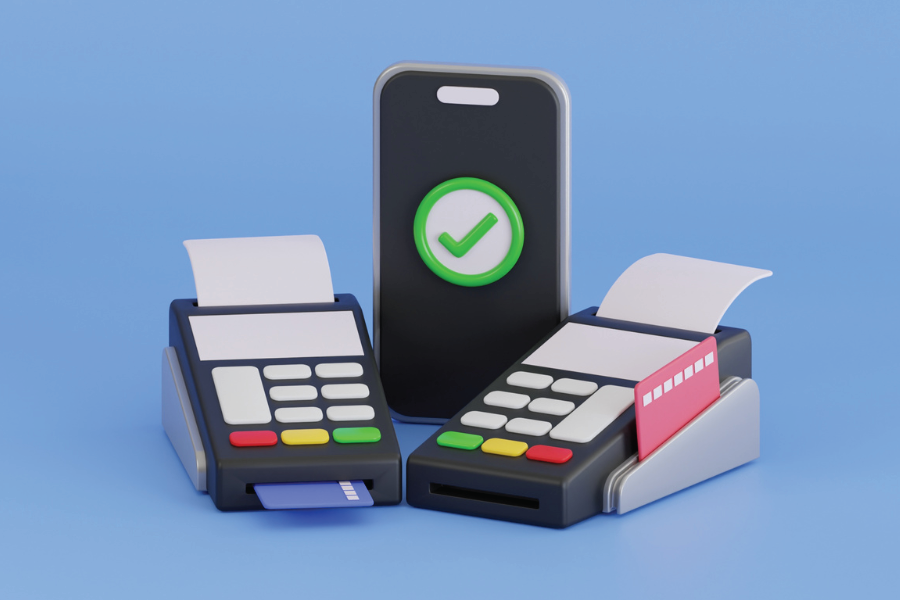
Secure Transactions
One of the primary considerations for any business is the security of transactions. Payment processing solutions provide secure channels for the exchange of funds, utilizing encryption and authentication protocols to safeguard sensitive information.
Multiple Payment Options
Flexibility is key in catering to diverse customer preferences. Payment processing solutions offer multiple payment options, including credit cards, digital wallets[4], and other emerging methods, ensuring businesses can accommodate a wide range of customers.
Integration Capabilities
Ensuring a smooth flow of operations, the integration with various business systems becomes paramount for seamless functionality. Payment processing solutions often offer integration capabilities, allowing businesses to connect transaction data with accounting, inventory, and customer relationship management systems.
Real-time Processing
In the fast-paced digital age, delays in transaction processing[5] can be detrimental. Payment processing solutions enable real-time processing, ensuring that transactions are completed swiftly, leading to improved customer satisfaction.
Types of Payment Processing Solutions
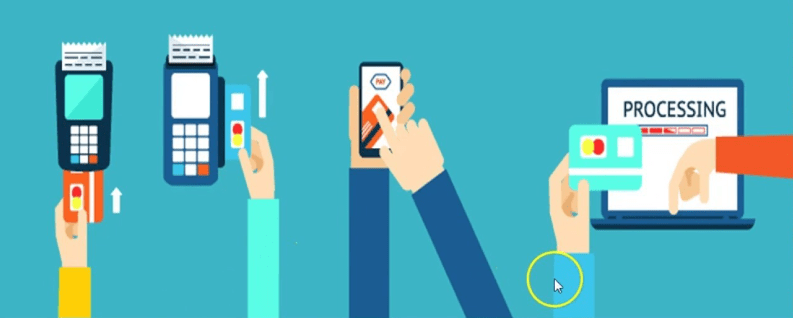
Point-of-Sale (POS) Systems
Traditionally used in retail settings, POS systems have evolved to handle various payment methods, including contactless and mobile payments. These systems streamline in-person transactions, providing a convenient experience for both businesses and customers.
Online Payment Gateways
With the rise of e-commerce, online payment gateways have become integral. These solutions facilitate secure transactions over the internet, offering businesses a global reach and customers a seamless online shopping experience.
Fraud Prevention
Payment processing solutions often incorporate advanced security measures to prevent fraudulent activities. Businesses can benefit from fraud detection algorithms and authentication protocols, safeguarding their financial assets.
Factors to Consider When Choosing a Payment Processing Solution
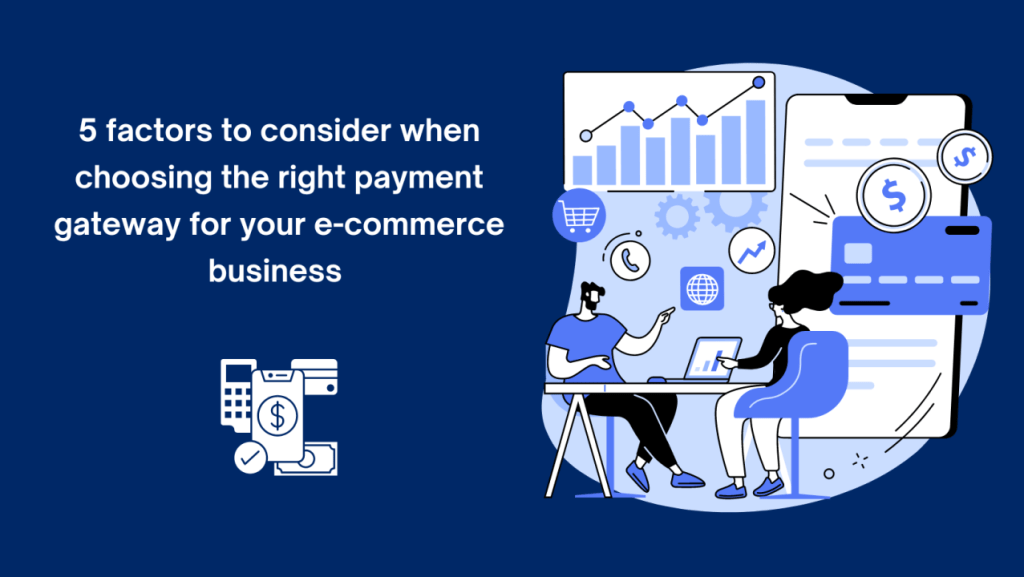
Security Measures
The security of financial transactions should be a top priority when selecting a payment processing solution. Businesses must ensure that the chosen system adheres to industry standards for data protection.
Transaction Fees
While the convenience of payment processing is essential, businesses need to consider the associated costs. Transaction fees can vary, and it’s crucial to evaluate the overall financial impact on the business.
Compatibility with Business Needs
Every business is unique, and the chosen should align with specific operational requirements. Whether it’s a POS system for a retail store or an online gateway for an e-commerce platform, compatibility is key.
Trends in Payment Processing
Contactless Payments
The adoption of contactless payment methods has surged in recent years. With the convenience of tapping a card or using a mobile wallet, businesses are adapting to meet the preferences of modern consumers.
Blockchain Technology
Blockchain’s decentralized and secure nature is making inroads into payment processing. Businesses exploring blockchain technology aim to enhance transparency and reduce the risk of fraud in transactions.
Artificial Intelligence
AI is revolutionizing payment processing by enabling predictive analytics, fraud detection, and personalized customer experiences. As businesses embrace AI, the efficiency and accuracy of financial transactions are set to improve.
Challenges in Payment Processing
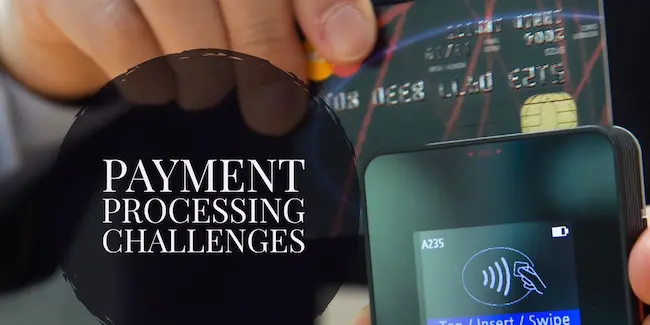
Security Concerns
Despite advancements, security remains a primary concern in payment processing. Businesses must continuously update their systems to stay ahead of evolving cyber threats.
Regulatory Compliance
Navigating the complex landscape of financial regulations is a challenge for businesses. Payment processing solutions must adhere to regional and international compliance standards.
Technological Obsolescence
The rapid evolution of technology poses a risk of obsolescence. Businesses need to invest in solutions that offer scalability and adaptability to future technological advancements.
Lessons Learned from Failures
Learning from failures is equally important. Analyzing cases where payment processing implementations faltered helps businesses avoid common pitfalls and make informed decisions.
Conclusion
Recap of Key Points are integral to modern business operations, offering secure, efficient, and diverse transaction options. Businesses that prioritize these solutions stand to gain a competitive edge in the evolving digital landscape.
FAQs
What is the primary benefit of using payment processing solutions for businesses?
Payment processing solutions improve cash flow, enhance customer experience, and provide robust fraud prevention measures.
How do businesses ensure the security of transactions when using payment processing solutions?
Businesses can ensure security by selecting solutions with advanced encryption, authentication protocols, and adherence to industry data protection standards.
What trends are shaping the future of payment processing?
Contactless payments, blockchain technology, and the integration of artificial intelligence are key trends influencing the future of payment processing.
How can businesses avoid common challenges in payment processing?
Regularly updating security measures, staying compliant with regulations, and investing in scalable solutions can help businesses navigate challenges successfully.
How can businesses avoid common challenges in payment processing?
Regularly updating security measures, staying compliant with regulations, and investing in scalable solutions can help businesses navigate challenges successfully.
Where can businesses access cutting-edge payment processing solutions?
Explore the latest payment processing solutions and stay ahead of the curve by visiting
